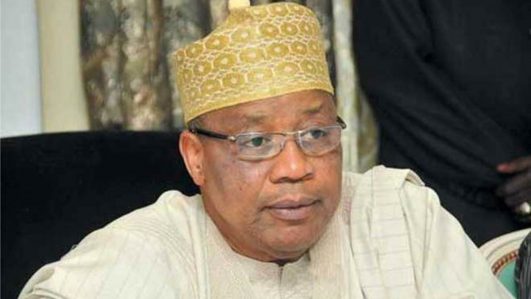Former military president, General Ibrahim Babangida (retd.), has strongly denied any involvement in the 1986 assassination of veteran journalist Dele Giwa, insisting that the truth surrounding the tragic incident is yet to be uncovered.
Giwa, the Editor-in-Chief of Newswatch and a prominent critic of Babangida’s military government, was killed in his Lagos home on October 19, 1986, by a parcel bomb. The murder shocked the nation and left many questioning the role of the government in the journalist’s untimely death.
Two days before the assassination, a senior official of the Directorate of Military Intelligence had accused Giwa of illegal arms stockpiling with the aim of staging a socialist revolution in Nigeria. Giwa, alarmed by the accusation, quickly informed his lawyer, the late Gani Fawehinmi.
However, the following day, Colonel Halilu Akilu, a security chief, called Giwa to reassure him that the charges were a misunderstanding and had been cleared up. Giwa was told not to worry, but soon after, a mysterious parcel arrived at his home bearing the seal of the Presidency, marked “To be opened by addressee only.”
Giwa’s son, Billy, received the parcel and handed it to his father, who was sitting at the dining table with Kayode Soyinka, the London correspondent of Newswatch. Moments later, the parcel exploded, killing Giwa instantly and leaving the nation in shock.
In his newly released autobiography, A Journey in Service, Babangida addressed the long-standing allegations of his involvement in Giwa’s death. The autobiography was launched in Abuja on Thursday, during an event attended by prominent political figures, including President Bola Tinubu, former Nigerian presidents, and other notable dignitaries.
In his book, Babangida expressed his belief that the truth about Giwa’s murder would eventually be uncovered, though he stated that media hysteria around the case had hindered investigations. According to Babangida, the media’s adversarial attitude towards the government at the time had clouded the case and made it difficult to pursue an impartial investigation.
“The hysteria of the media did not help the investigation of the Giwa murder,” Babangida wrote. “As is typical of the Nigerian media, the direction was marked by an adversarial attitude towards the government, which had remained the hallmark of the Nigerian media from its colonial heyday.”
He went on to say that the Nigerian media had a long-standing tradition of presenting the government as guilty even before evidence had been presented. Babangida also referenced the reopening of the case during the Obasanjo civilian administration at the Oputa Panel on Human and Civil Rights, but expressed disappointment that no new evidence had emerged to shed light on the murder.
“When the Obasanjo civilian administration reopened the Giwa case at the Oputa Panel on Human and Civil Rights, I expected that the police and lawyers would come forward with new evidence as to their findings on the Giwa murder over the years. Nothing of such happened. The Giwa, like all mysterious murders, has remained unsolved after so many years. I keep hoping it will be uncovered in our lifetime or after us. More often than not, mysterious crimes are solved long after their commission,” Babangida said in his autobiography.
While Babangida remains hopeful that the truth will eventually come to light, the case has long been a point of controversy in Nigerian politics, with many still questioning the involvement of the government.
Dele Giwa’s death continues to haunt Nigerian journalism and remains one of the most high-profile unsolved cases in the country’s history. At the time of his murder, Giwa was a vocal critic of the Babangida government, and many have speculated that his assassination was linked to his investigative work and outspoken views.
In the years following the incident, the Nigerian press, human rights groups, and the public at large demanded justice, but the case remained mired in uncertainty. Various theories have been suggested over the years, but no one has been formally held accountable for Giwa’s death.
In recent years, there have been attempts to re-examine the case. The reopening of the investigation by the Oputa Panel during the tenure of former president Olusegun Obasanjo was seen as a positive development. However, as Babangida pointed out in his autobiography, no substantial new evidence has been brought forward to solve the case.
Babangida’s autobiography, which also details his life and military career, was officially launched in Abuja on Thursday, drawing a wide range of political and business leaders to the event. President Bola Tinubu, former Presidents, former Vice Presidents Atiku Abubakar, Namadi Sambo, and Yemi Osinbajo, as well as presidential candidates like Peter Obi and Rabiu Kwankwaso, were present at the book launch.
In addition to the autobiography, Babangida’s presidential library was also launched, a milestone in his ongoing efforts to preserve his legacy. The event saw the presence of prominent figures from various sectors, including industrialists, technocrats, traditional rulers, and diplomats.
Nana Akufo-Addo, the former President of Ghana, delivered the keynote address at the event, with his counterpart, Ernest Koroma, the former President of Sierra Leone, also in attendance.
The launch was a major occasion for Babangida, who has been a controversial figure in Nigerian politics. While his tenure as military president (1985-1993) is remembered for economic reforms, political instability, and a failed attempt to transition Nigeria to civilian rule, the murder of Dele Giwa remains one of the most significant events of his administration.

